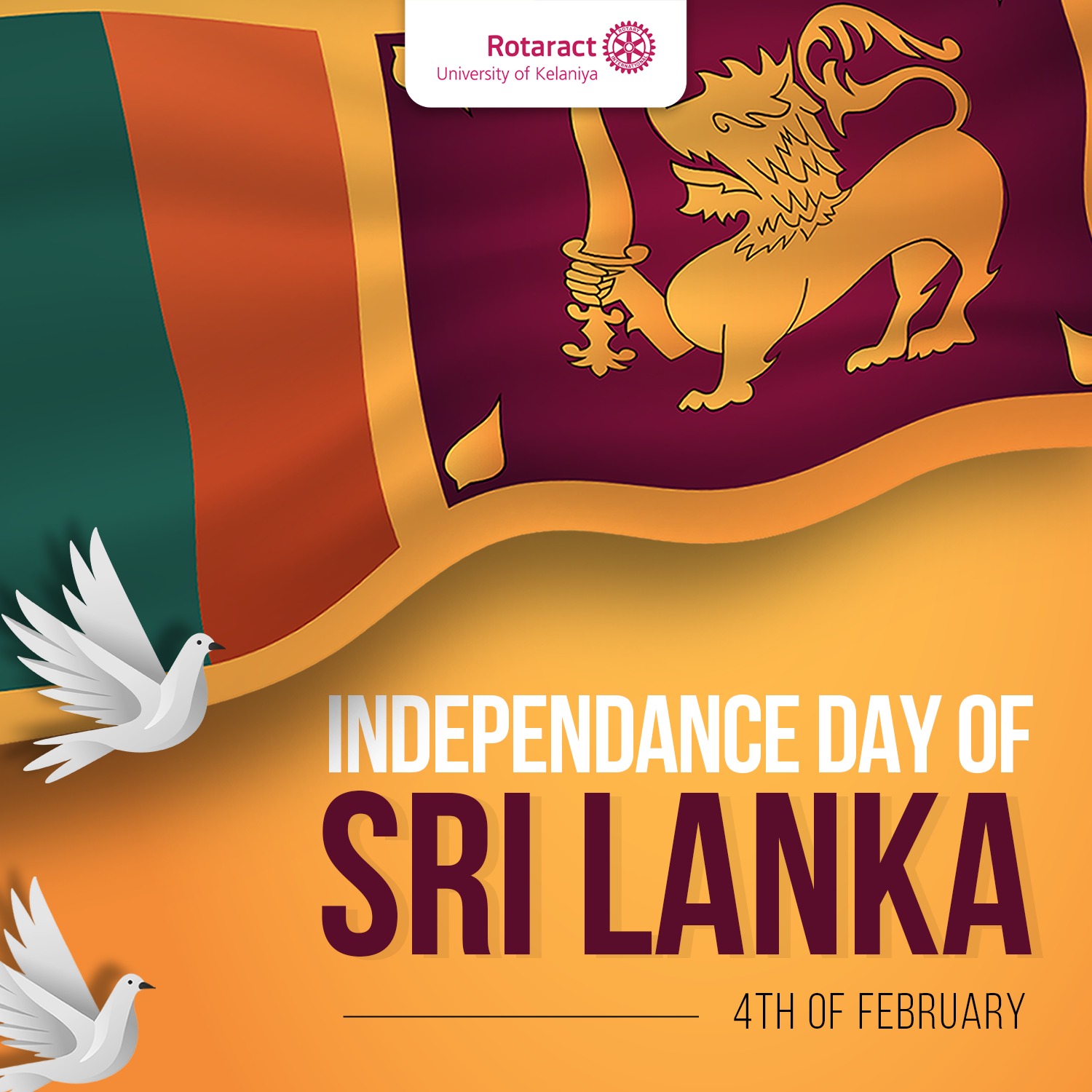The ‘Independence Day’ is one of the most important days for a country which was conquered by a stronger country for a long period of time. When considering Sri Lanka, we see that Sri Lanka faced invasions by Dravidian clans (especially the Cholas and the Pandyans) in the early days of the Anuradhapura, Polonnaruwa, and Dambadeniya Kingdoms in the first, second, and third centuries A.D. However, with the epicenter of world power shifting towards Europe in the 14th and 15th centuries A.D, after the Ottoman empire invaded and captured Constantinople, European countries started to conquer the seas with their naval forces in a conquest to discover and capture new lands which could be utilized to generate capital which was needed to expand their empires.
Sri Lanka was invaded by three European powers, the Portuguese in 1505, the Dutch in 1658 followed by the British in 1815. Out of these three colossal imperial powers, the British managed to have the largest influence on the ‘Pearl of the Indian Ocean’, considering their act of imperialism as an act of civilizing societies as argued by William Easterly in his book titled ‘The White Man’s Burden’. Even though, what actually happened was the transmission of the anglophile culture and system to British colonies including Sri Lanka and India by rewriting their heritage. Kandy, the last kingdom of Sri Lanka or Ceylon was captured by the British and the last king of Ceylon Sri Wickrama Rajasingha was exiled and sent to Vellore a city in Tamil Nadu, India. The Kandyan Convention was drafted by Sir John D’Oyly the architect behind the invasion of the kingdom of Kandy and signed by the Governor Sir Robert Brownrigg and the Kandyan Chiefs on the 2nd of March 1815. There were two rebellions which took place against the obnoxious British rule to gain independence. The 1818 Uva Wellassa Rebellion which is known as the first-ever revolution against the British Empire in the world and the 1848 Rebellion was suppressed by the British and they laid a stronghold on their colony named Ceylon.
The 1833 Colebrooke-Cameron reforms, 1910 McCallum Reforms, 1920 Manning Reforms, 1924 Manning – Devonshire Reforms, and the 1931 Donoughmore reforms were some of the constitutional measures adopted by the British to lay a stronghold on Ceylon which was a precious colony famous for its affluent soil which produced tea, rubber as well as spices like cinnamon and other raw materials needed for industrial progression in England. However, with the start of the 20th century, a nexus of non-imperialist motives were present among the Ceylonese political elite headed by the Ceylon National Congress formed in 1917. After the outbreak of the Second World War (1939-1945), Britain had to set free of some of its colonies like Ceylon, India, Burma, and Pakistan due to the large costs they spent for the war according to the policies of the Labour government. In this way, in 1947 the Soulbury Constitution was drafted for Ceylon and we were given the right of self-government. Ceylon was given independence from the ‘Empire on Which the Sun Never Sets’ on the 4th of February 1948, on this day 75 years ago, although there is a counterargument stating that real independence was achieved on the 22nd of May 1972 when Sri Lanka became a republic.
Today as we reminisce 75 years after independence, we see that Sri Lanka is facing its largest economic crisis since independence and Sri Lanka is once again facing tensions of the shift of the global balance of power. Today let us remember those who worked hard to achieve this independence by using their blood, toil, tears, and sweat.
The 35th poem of Rabindranath Tagore’s Nobel Prize-winning work of literature ‘Gitanjali’ gives us a glimpse of true independence which should be the hope and prayer of every citizen of this wonderful country.
Where the mind is without fear and held head high;
Where knowledge is free;
Where the world has not been broken up into fragments by narrow domestic walls;
Where words come out from the depth of truth;
Where tireless striving stretches its arms towards perfection;
Where the clear stream of reason has not lost its way into the dreary desert sand of dead habit;
Where the mind is led forward by thee into ever-widening thought and action –
Into that heaven of freedom, my father, Let My Country Awake.




